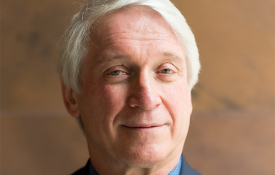-

New Research from Psychological Science
A sample of research exploring sounds and symbolism, object-based attention, and reward exploration.
-

Hinshaw Receives Ruane Prize for ADHD Research
APS Fellow Stephen Hinshaw has received the 2019 Ruane Prize for his work on the developmental psychopathology of attention deficit hyperactivity disorder.
-
Call for Applications: SRCD U.S. Policy Fellowships
The Society for Research in Child Development (SRCD) is seeking applications for the upcoming 2020-2021 SRCD U.S. Policy Fellowship Programs. Fellowship opportunities are available for current doctoral students and early- to advanced-career experts with a doctoral-level degree in any discipline related to child development. Deadline: January 3, 2020 More information is available on the SRCD website.
-

Inability to Feel Pleasure Could Influence Opioid Addiction Treatment, Scientists Say
A team of clinical scientists is examining a possible psychological symptom that may heighten craving and risk of replace for people recovering from opioid dependence.dependence.
-
Good Habits, Bad Habits: A Conversation with Wendy Wood
Early in her academic career, psychologist Wendy Wood noticed a trend: many of her fellow graduate students and professors struggled to get things done in the highly demanding but unstructured academic environment. Intelligence, talent, and motivation didn’t seem to matter—some of those who were struggling to stick to project plans or meet deadlines were among the brightest of the group. Why, she wondered, was it so easy to make the initial decision to change but so hard to persist in the long term? Willpower didn’t seem to be the issue—her colleagues wanted to and were trying to change—so what was? Over the past three decades, Wood has sought the answers to these questions.
-
The Science of Getting Over It
Despite our commitment to 24/7 news, unlimited-data plans, and bottomless mimosas, nothing lasts forever. So how should we handle life’s endings and last hurrahs? Should we rage against the dying of the light, or be content to let things go? ... [6] Another study, this one focusing on end-of-life professionals such as hospice workers, found that firsthand exposure to death left these people more likely to “live in the present, cultivate a spiritual life and reflect deeply on the continuity of life.”

